At El Futuro, our Training, Education, and Consultation Services (TECS) are about more than sharing knowledge—they’re about creating lasting change in how mental health care is delivered to Latino communities. To give you an inside look, we sat down with Samuel Marsan, our new Clinical Mental Health Trainer for TECS, to learn what drives his passion and how TECS is shaping the future of care in North Carolina and beyond.
Q: Can you share a bit about your journey into clinical psychology and what inspired you to specialize in bilingual, culturally responsive care?
Samuel: My journey began with a deep curiosity about people—what it feels like to live through someone else’s perspective. Clinical psychology gave me a way to nurture that curiosity through meaningful person-to-person work while also engaging with research and the bigger questions of what it means to be human. As a bilingual and bicultural person, I quickly realized my own background could be a bridge. Spanish was my first emotional language, while English became my academic one. Navigating these two worlds gave me a unique lens to support communities that often face barriers to accessing care.
Q: What experiences from your training at Duke and UTHealth most shaped your approach to working with Latino communities?
Samuel: At Duke, I worked with Hispanic families who had private access to care, which sparked my interest in family dynamics across cultures. Later, during my internship at UTHealth in Houston, I supported families navigating very different realities—parents who were Spanish-dominant raising English-dominant young adults with autism. That experience underscored the importance of bilingual and bicultural providers. We aren’t just translators of language—we’re bridge builders between worlds.
Q: What drew you to El Futuro, and specifically to join the TECS team?
Samuel: I first learned about El Futuro as an undergraduate at UNC–Chapel Hill. Even then, I was drawn to its vision and its growth. Over the years, I’ve seen El Futuro transform into not only a service provider but also a hub for training and consultation. Joining TECS feels like coming full circle—it’s a chance to spread best practices, research, and culturally grounded approaches to providers serving Hispanic and Spanish-speaking communities across the state.
Q: In your view, what makes TECS unique compared to other training and consultation initiatives?
Samuel: TECS is rooted in calor humano—human warmth. That means we don’t just transfer skills; we build relationships. We create an inclusive environment where providers feel welcomed and supported, not judged or lectured. This combination of bilingual accessibility and cultural grounding makes TECS truly one of a kind.
Q: What role will bilingual and bicultural providers play in the future of mental health care?
Samuel: They’ll be absolutely essential. As the Hispanic population grows, we need providers who not only have strong clinical skills but also cultural humility. It’s about recognizing resilience, diversity, and shared histories of immigration and trauma. Without this, equity in care simply isn’t possible.
Q: What excites you most about contributing to TECS’ mission?
Samuel: What excites me is that my personal values align with El Futuro’s—this idea of shared humanity and warmth. Being part of TECS means helping ensure providers aren’t just prepared with tools, but also emotionally and culturally ready to serve with compassion. That’s powerful.
Q: If you could send one message to providers or organizations considering engaging with TECS, what would it be?
Samuel: Be ready to learn—and to be transformed. TECS is more than a training; it’s a collaborative journey. You’ll leave not only with knowledge but with a renewed sense of connection to the communities you serve.
Why does this matter to you?
El Futuro’s TECS program is scaling impact by training providers across North Carolina to deliver culturally responsive, bilingual care. That means every dollar invested here multiplies, reaching not just one client but hundreds of families who will benefit from better-equipped providers. Together, we can create a future where every family, no matter their language or culture, feels seen, supported, and cared for.

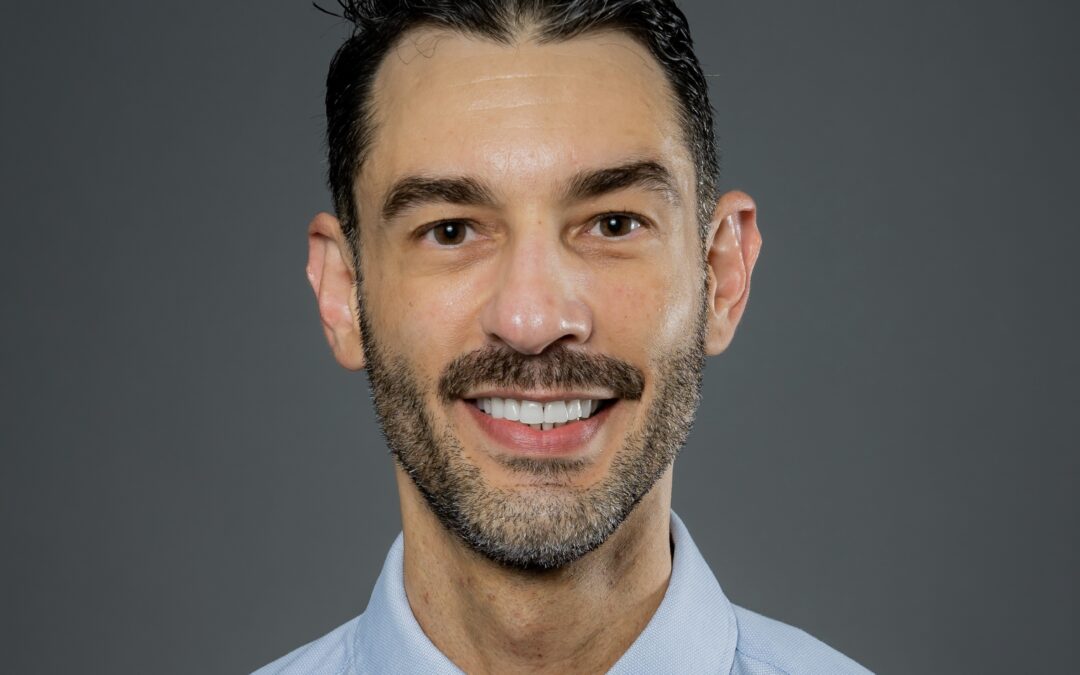
 Alvely Alcántara, LCSW
Alvely Alcántara, LCSW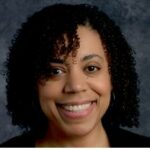 Rossy C. Garcia, MEd
Rossy C. Garcia, MEd  Katy Sims, MD
Katy Sims, MD 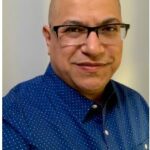 Everardo Aviles, LCSW, LCAS (Eve)
Everardo Aviles, LCSW, LCAS (Eve)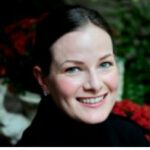 As a medical anthropologist and social work researcher, Dr. Gulbas’ research embodies interdisciplinarity through the integration of applied theories of health and human development with qualitative and ethnographic methodologies. Her work seeks to understand how people—children, families, and providers—navigate complex sociocultural landscapes in the pursuit of mental health. Most of her work, to date, focuses attention on developing more robust interpretations of suicide risk. With funding from the National Institutes of Mental Health, this body of research has contributed to advancements in theoretical and empirical knowledge of the broader contexts within which youth suicide risk is situated.
As a medical anthropologist and social work researcher, Dr. Gulbas’ research embodies interdisciplinarity through the integration of applied theories of health and human development with qualitative and ethnographic methodologies. Her work seeks to understand how people—children, families, and providers—navigate complex sociocultural landscapes in the pursuit of mental health. Most of her work, to date, focuses attention on developing more robust interpretations of suicide risk. With funding from the National Institutes of Mental Health, this body of research has contributed to advancements in theoretical and empirical knowledge of the broader contexts within which youth suicide risk is situated. 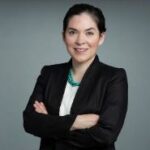 R. Gabriela Barajas-Gonzalez is a developmental psychologist and an assistant professor of Population Health at NYU Grossman School of Medicine. Dr. Barajas-Gonzalez is the principal investigator of a study that examines the impact of immigration-related threat and stress on school communities. She earned a PhD in developmental psychology from Columbia University and hold a BA in human biology from Stanford University. Dr. Barajas-Gonzalez is the daughter of Mexican immigrants and a first gen college student.
R. Gabriela Barajas-Gonzalez is a developmental psychologist and an assistant professor of Population Health at NYU Grossman School of Medicine. Dr. Barajas-Gonzalez is the principal investigator of a study that examines the impact of immigration-related threat and stress on school communities. She earned a PhD in developmental psychology from Columbia University and hold a BA in human biology from Stanford University. Dr. Barajas-Gonzalez is the daughter of Mexican immigrants and a first gen college student.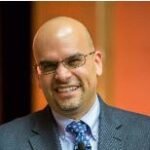 Dr. Parra-Cardona is an Associate Professor in the Steve Hicks School of Social Work (SHSSW) at the University of Texas at Austin. At the SHSSW, he serves as Coordinator for Mexico and Latin American initiatives. He also serves as Area Director for Research at the UT Austin Latino Research Institute. Dr. Parra-Cardona’s program of research is focused on the cultural adaptation of evidence-based parenting interventions for low-income Latinx populations in the US and Latin America.
Dr. Parra-Cardona is an Associate Professor in the Steve Hicks School of Social Work (SHSSW) at the University of Texas at Austin. At the SHSSW, he serves as Coordinator for Mexico and Latin American initiatives. He also serves as Area Director for Research at the UT Austin Latino Research Institute. Dr. Parra-Cardona’s program of research is focused on the cultural adaptation of evidence-based parenting interventions for low-income Latinx populations in the US and Latin America. Bianka Reese, PhD, MSPH is a research scientist and program evaluator specializing in adolescent and young adult sexual and reproductive health. Her previous research in the experiences of Latinx LGBTQ+ youth stems from her work as the Research and Evaluation Manager at SHIFT NC (Sexual Initiatives For Teens), where she led largescale evaluations of multilevel, community-based sexual health promotion initiatives and research projects aimed at elevating the voices of diverse youth in North Carolina. Dr. Reese is currently the Senior Research Strategist at Creative Research Solutions, LLC, an award-winning national evaluation, research, and assessment firm.
Bianka Reese, PhD, MSPH is a research scientist and program evaluator specializing in adolescent and young adult sexual and reproductive health. Her previous research in the experiences of Latinx LGBTQ+ youth stems from her work as the Research and Evaluation Manager at SHIFT NC (Sexual Initiatives For Teens), where she led largescale evaluations of multilevel, community-based sexual health promotion initiatives and research projects aimed at elevating the voices of diverse youth in North Carolina. Dr. Reese is currently the Senior Research Strategist at Creative Research Solutions, LLC, an award-winning national evaluation, research, and assessment firm. Tania Connaughton-Espino, MPH is an independent researcher focused on adolescent and young adult sexual and reproductive health. Her interest in the experiences of Latinx LGBTQ+ youth stems from her previous work with SHIFT NC (Sexual Initiatives For Teens), where she led the training and evaluation department, conducted capacity-building workshops for youth serving professionals including on the topic of how to be more affirming of LGBTQ youth, and from her extensive experience working with the Latinx population in NC.
Tania Connaughton-Espino, MPH is an independent researcher focused on adolescent and young adult sexual and reproductive health. Her interest in the experiences of Latinx LGBTQ+ youth stems from her previous work with SHIFT NC (Sexual Initiatives For Teens), where she led the training and evaluation department, conducted capacity-building workshops for youth serving professionals including on the topic of how to be more affirming of LGBTQ youth, and from her extensive experience working with the Latinx population in NC. Maru Gonzalez, EdD is an Assistant Professor and Youth Development Specialist in the Department of Agricultural and Human Sciences at North Carolina State University. Her areas of inquiry include youth development with a focus on activism, social justice, and the experiences of LGBTQ+ young people across familial, school, and community contexts.
Maru Gonzalez, EdD is an Assistant Professor and Youth Development Specialist in the Department of Agricultural and Human Sciences at North Carolina State University. Her areas of inquiry include youth development with a focus on activism, social justice, and the experiences of LGBTQ+ young people across familial, school, and community contexts.  Nayeli Y. Chavez-Dueñas, PhD
Nayeli Y. Chavez-Dueñas, PhD Hector Y. Adames, PsyD
Hector Y. Adames, PsyD